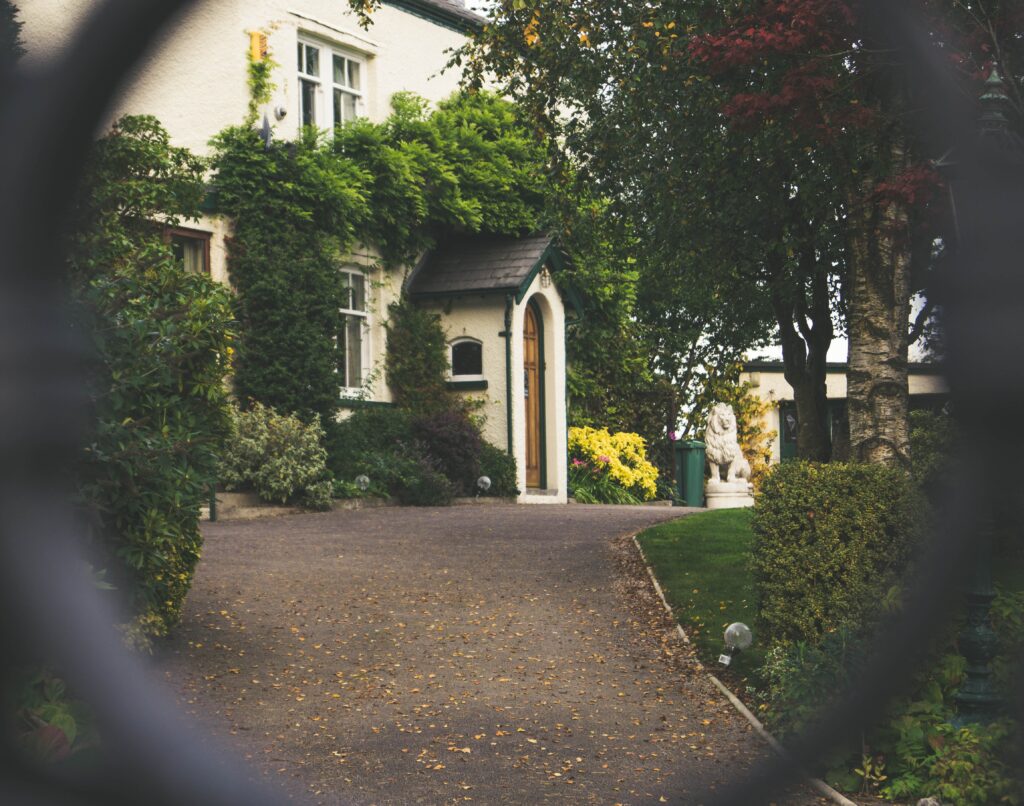If you’re planning to power up your 3 bedroom house during a power outage or in a remote location without electricity, you might be wondering, “What size generator do I need?” Well, fret not! In this article, we’ll explore the different factors that determine the right generator size for your 3 bedroom house. From calculating the total power wattage required to understanding the types of generators available, we’ve got you covered. So, let’s dive in and find out which generator will keep your house running smoothly in any situation!
Understanding Generator Size Requirements
Concept of Generator Sizing
When it comes to choosing the right generator for your 3 bedroom house, understanding generator sizing is essential. Generator sizing refers to selecting a generator with a capacity that can meet the power demands of your home. The size of the generator you need will depend on various factors such as the number of appliances you have, their energy consumption, and the surge demand.
How Generators are Measured
Generators are measured in watts, which is a unit of power. The power output of a generator is typically divided into two categories: starting watts and running watts. Starting watts are the extra power required by appliances when they are first turned on, whereas running watts refer to the continuous power needed to keep appliances running. By understanding the starting and running watts of your appliances, you can determine the appropriate generator size.
Importance of Accurate Sizing
Accurate sizing is crucial when choosing a generator for your 3 bedroom house. If the generator is too small, it may not be able to power all your essential appliances during an outage. On the other hand, an oversized generator can be inefficient and lead to unnecessary expenses. Additionally, overloading a generator can damage both the generator and your appliances. Therefore, understanding your power needs and accurately sizing the generator is vital to ensure reliable and efficient operation.
Essential Appliances in a 3 Bedroom House
Number of Appliances
Before determining the power requirements for your 3 bedroom house, it’s essential to consider the number of appliances you have. In a typical 3 bedroom house, you can expect to have several essential appliances, including refrigerators, air conditioners, water heaters, lighting fixtures, televisions, computers, and kitchen appliances such as stoves, microwaves, and dishwashers.
Energy Consumption of Common Appliances
To accurately size a generator, you need to know the energy consumption of each appliance in your house. This information is usually provided on the appliance’s label or in the user manual. The energy consumption is measured in watts or kilowatts (kW). By adding up the wattage of all your appliances, you can determine the total power requirements for your 3 bedroom house.
Determining Your Power Needs
Once you have a list of your appliances and their respective power consumption, you can calculate your power needs. Consider the starting watts and running watts of each appliance to estimate the total power requirements. Take into account any surge demand that may occur when multiple appliances start simultaneously. This will help you choose a generator that can handle the peak power demand of your 3 bedroom house.

Different Types of Generators
Portable Generators
Portable generators are versatile and can be easily moved to different locations. They are typically fueled by gasoline and provide temporary power during outages or for outdoor activities. Portable generators come in various sizes, ranging from smaller models suitable for camping to larger units capable of powering your entire 3 bedroom house. They are an affordable and convenient option for backup power.
Standby Generators
Unlike portable generators, standby generators are permanently installed near your house and automatically provide power during outages. They are directly connected to your home’s electrical system and are fueled by natural gas or propane. Standby generators offer seamless power transfer and can supply a high capacity of electricity. They are ideal for homeowners who want uninterrupted power supply without the need for manual operation.
Inverter Generators
Inverter generators are known for their fuel efficiency and quiet operation. They produce clean and stable power that is safe for sensitive electronic devices. Inverter generators use advanced technology to regulate the speed of the engine based on the power demand, resulting in less fuel consumption and reduced noise levels. They are portable and suitable for powering appliances in your 3 bedroom house or for recreational activities.
Importance of Starting and Running Watts
What are Starting and Running Watts?
Starting watts, also known as peak watts or surge watts, refer to the extra power required by appliances when they are first turned on. This surge in power is needed to overcome the initial resistance and start the motor or compressor. Running watts, on the other hand, are the continuous power needed to keep the appliances running once they have started.
How to Calculate Your Household’s Watts
To calculate your household’s total power requirements in watts, you need to consider both the starting watts and running watts of each appliance. Add up the starting watts of all appliances that might start simultaneously to determine the peak power demand. Then, add the running watts of all appliances that will be operational at the same time. By adding these values together, you can determine the overall wattage your generator needs to handle.
Understanding Surge Demand
Surge demand is the additional power required when multiple appliances start simultaneously. Appliances like air conditioners, refrigerators, and well pumps often require significant starting watts due to the motors or compressors they contain. Understanding surge demand is crucial in choosing a generator that can comfortably handle the initial power requirements of your appliances.

Generator Sizing Based On House Size
How Does House Size Affect Generator Sizing?
The size of your house can have an impact on the generator sizing process. A larger house generally means more rooms, appliances, and potentially higher power demands. It’s important to consider the number of bedrooms, bathrooms, living areas, and any additional spaces that require power in your 3 bedroom house. The size of your house will influence the total wattage needed to power all the essential appliances.
Differences in Power Needs Based on House Size
A larger house typically requires a generator with a higher power output to accommodate the increased number of appliances and electrical systems. The power distribution in larger houses is often divided into multiple circuits, each serving different areas of the house. This means that the generator needs to provide enough power to support all the circuits and ensure all essential appliances are powered during an outage.
Finding the Right Generator for a 3 Bedroom House
To find the right generator for your 3 bedroom house, you need to consider both the total power requirements and any specific needs or preferences you may have. Calculate the total wattage needed based on your appliances, including their starting and running watts. Once you have an estimate of the power demand, choose a generator with a suitable power output and features that align with your requirements.
Generator Features to Consider
Power Output
The power output of a generator is an essential factor to consider. It determines the capacity of the generator to supply electricity to your 3 bedroom house. Ensure that the generator you choose has enough power output to meet the total wattage requirements of your appliances. Overloading a generator can result in poor performance, increased fuel consumption, and potential damage to both the generator and your appliances.
Fuel Efficiency
Fuel efficiency is an important consideration, especially if you expect to use the generator for prolonged periods. Look for generators that are designed to maximize fuel efficiency, as this can help reduce operational costs and minimize environmental impact. Inverter generators are known for their fuel efficiency, as they adjust the engine speed based on the power demand, consuming only the necessary amount of fuel.
Noise Levels
generators can be noisy, and their noise levels can vary depending on the type and model. Consider the noise levels of the generator, especially if noise is a concern in your neighborhood or if you prefer a quieter environment. Inverter generators are generally quieter compared to traditional portable generators due to their advanced technology and soundproofing features.
Longevity and Durability
Investing in a generator that is built to last is crucial. Look for generators made from durable materials that can withstand different weather conditions. Consider the reputation and track record of the manufacturer regarding the reliability and longevity of their generators. Reading reviews and seeking recommendations can also provide valuable insights into the durability of different generator models.
Safety Features
Generator safety should not be overlooked. Look for generators equipped with safety features such as circuit breakers, low-oil shutdown, and overload protection. These features help prevent potential hazards and protect both the generator and your appliances. Additionally, ensure that you understand and adhere to all safety guidelines provided by the manufacturer to ensure safe and proper operation.

Fuel Types for Generators
Gasoline Generators
Gasoline generators are the most common type of portable generators. They are readily available and offer a cost-effective solution for backup power. Gasoline generators are easy to use and suitable for powering small to medium-sized appliances. However, gasoline has a shorter shelf life compared to other fuel types, making it important to properly store and rotate the fuel to ensure its usability during emergencies.
Diesel Generators
Diesel generators are known for their efficiency and durability. They are ideal for larger power needs and can provide a longer runtime compared to gasoline generators. Diesel fuel is less flammable and has a longer shelf life, making it a reliable choice for long-term generator usage. However, diesel generators are generally more expensive upfront and require periodic maintenance to ensure their optimal performance.
Natural Gas Generators
Natural gas generators are commonly used as standby generators. They offer a continuous fuel supply through a direct connection to your home’s natural gas line. Natural gas is a clean-burning fuel, making these generators more environmentally friendly compared to other fuel types. However, their installation and connection to a natural gas line require professional assistance, and they may not be suitable for areas without a natural gas supply.
Propane Generators
Propane generators are versatile and can be used for both portable and stationary applications. Propane fuel is readily available and can be stored for long periods without degradation. Propane generators are known for their clean-burning properties and can provide a reliable and efficient power source. Additionally, propane is easily accessible, making it a convenient fuel option for areas without natural gas connections.
Tips for Extended Generator Use
Fuel Storage Tactics
If you anticipate extended generator use, proper fuel storage is essential. Store fuel in approved containers that are designed for long-term storage and are resistant to leaks and corrosion. It’s crucial to rotate the fuel regularly to prevent degradation and ensure its usability. Storing fuel in a cool and well-ventilated area away from heat sources and open flames is also important for safety.
Regular Maintenance
Regular maintenance is key to ensuring the optimal performance and longevity of your generator. Follow the manufacturer’s recommended maintenance schedule, which may include tasks such as oil changes, filter replacements, and spark plug inspections. Keep the generator clean and free from debris, and check for any potential issues or signs of wear. By properly maintaining your generator, you can minimize the risk of breakdowns and extend its lifespan.
Managing and Balancing Load
When using a generator, it’s important to manage and balance the load to avoid overloading. Allocate the power output of the generator among your appliances, considering their starting and running watts. Be mindful of which appliances you run simultaneously to avoid exceeding the generator’s capacity. By properly managing the load, you can prevent performance issues, ensure efficient operation, and prolong the life of your generator.
Local Codes and Regulations for Generator Use
Understanding Your Local Regulations
When using a generator, it’s crucial to be aware of and comply with your local codes and regulations. Different areas may have specific guidelines regarding generator installation, operation, and safety requirements. Familiarize yourself with these regulations to ensure that you are using the generator in a legal and safe manner.
Meeting Safety Standards
Generators should be installed and operated in accordance with safety standards to prevent potential hazards. Ensure that you have proper wiring and grounding in place when connecting the generator to your home’s electrical system. Follow the manufacturer’s instructions for safe installation and operation, and consider consulting a professional electrician for assistance to ensure compliance with safety standards.
Securing Necessary Permits
In some cases, permits may be required for generator installation or operation. Check with your local authorities to determine if any permits are necessary before installing a generator in your 3 bedroom house. Obtaining the required permits ensures that your generator installation is compliant with local regulations and can help prevent any legal issues in the future.
Cost Considerations When Choosing a Generator
Initial Purchase Cost
The initial purchase cost is an important factor to consider when choosing a generator. The cost of a generator can vary depending on its type, power output, and features. Portable generators are generally more affordable compared to standby generators. It’s important to balance your budget with the capacity and features you require to ensure that you are making a worthwhile investment.
Operational Costs
In addition to the upfront cost, it’s important to consider the operational costs of the generator. This includes the cost of fuel or any other energy source required to run the generator. Different fuel types have varying costs, and fuel consumption can vary depending on the generator’s efficiency. Consider the estimated runtime and fuel consumption of the generator to determine the operational costs over time.
Maintenance and Repair Costs
Regular maintenance and potential repairs are also factors to consider when assessing the overall cost of owning a generator. Routine maintenance tasks such as oil changes and filter replacements incur additional costs. Additionally, unforeseen repairs or component replacements may be necessary during the lifespan of the generator. Research the maintenance requirements and potential repair costs associated with different generator models to make an informed decision.
Cost-Benefit Analysis
When choosing a generator for your 3 bedroom house, it’s important to conduct a cost-benefit analysis. Consider the upfront purchase cost, operational costs, maintenance costs, and potential savings or benefits provided by the generator. Calculate the potential return on investment based on the frequency and duration of power outages in your area, as well as any possible financial or practical advantages the generator may offer. By evaluating the cost-benefit ratio, you can make an informed decision that aligns with your budget and needs.
In conclusion, choosing the right generator for your 3 bedroom house involves a thorough understanding of generator sizing, the power requirements of your appliances, the different types of generators available, and the various factors to consider, such as fuel types, generator features, local regulations, and cost considerations. By considering these aspects and conducting thorough research, you can select a generator that meets your power needs, ensures reliable operation, and provides peace of mind during power outages.




